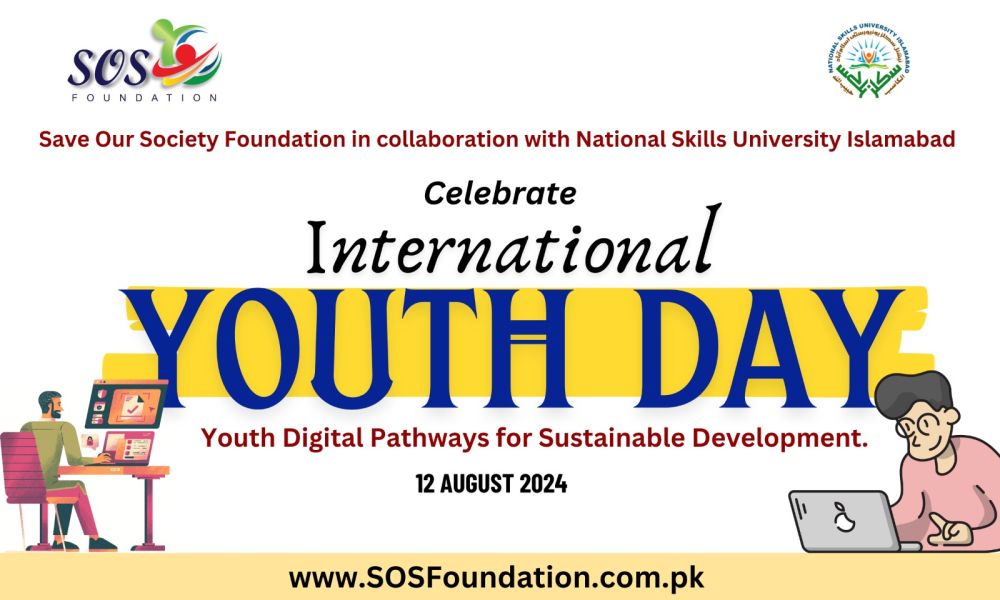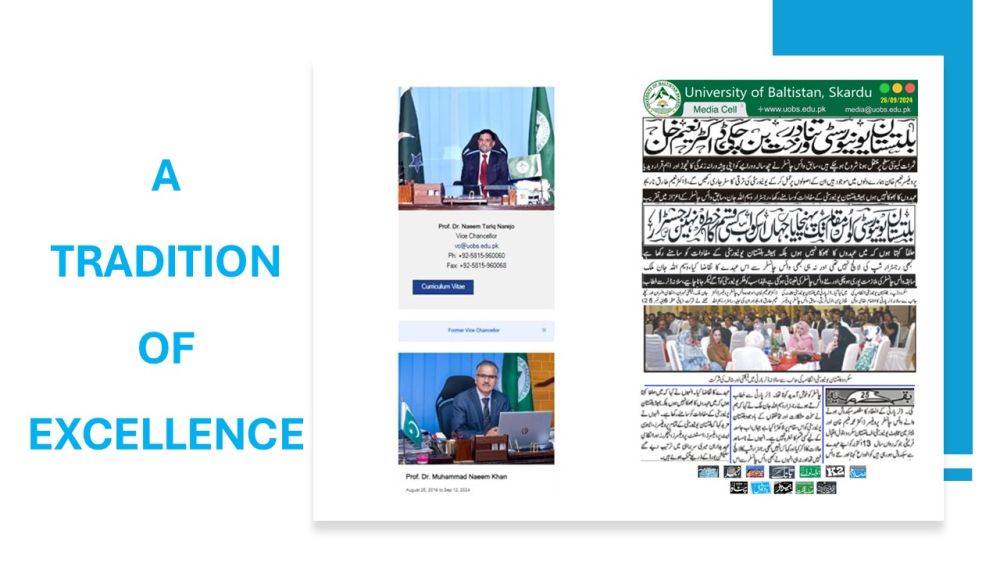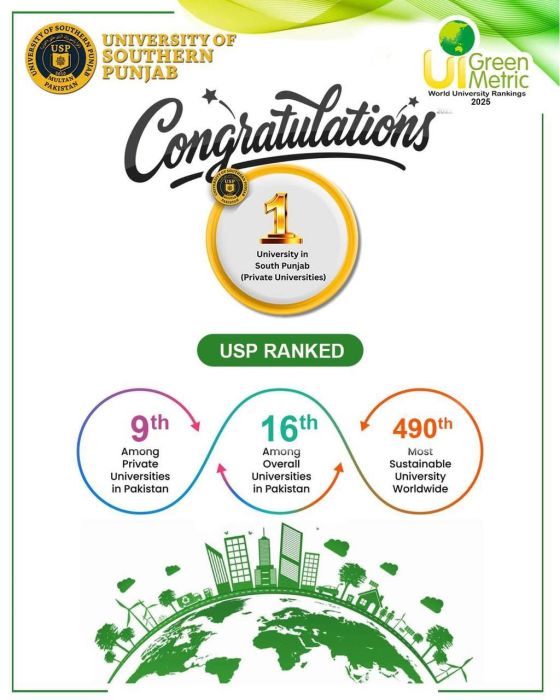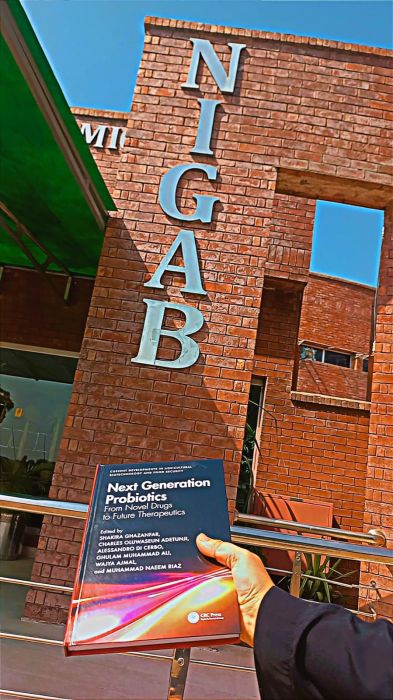178/25 From Multan and Islamabad to Nationwide Educational Institutions: Happy Independence Day and Marka E Haq Celebrations in the Perspective of Promoting Education
Posted 5 months ago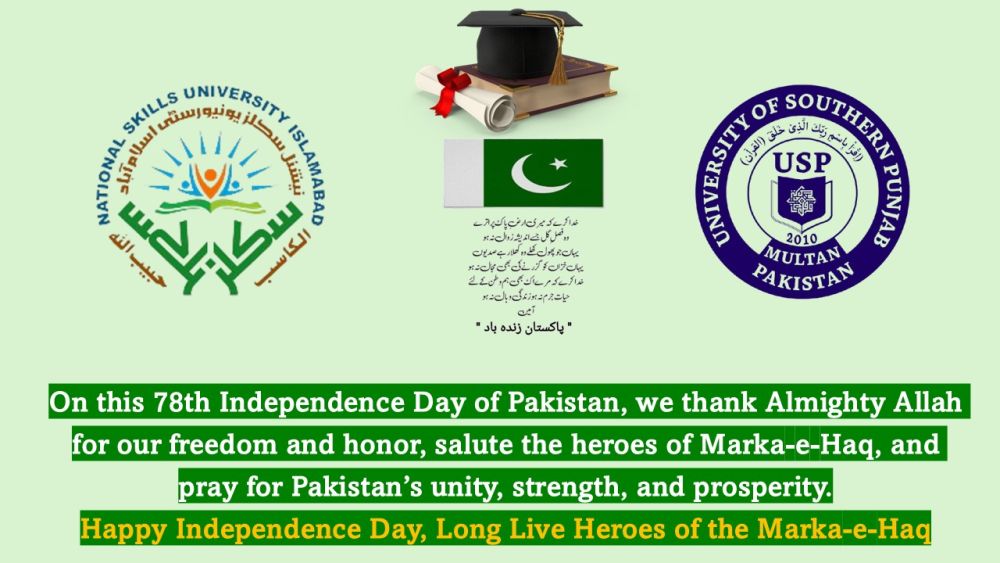
Every August 14 reminds Pakistan of the ideals upon which it was founded: Unity, Faith, and Discipline. But as the nation turns toward its future, the most pressing question isn't whether educational institutions are playing their role envisioned with the Independence and dreams of Sir Syed Ahmad Khan and Quaid-e-Azam Mohammad Ali Jinnah. In this article, the editor-in-chief of the HunarNama talks about two highly progressive Universities, one in the capital city and the other in the City of Saints, Multan.
Several other educational institutions play a positive role in the country; however, they must divert themselves to align with national priorities, dreams of Independence Day, Marvels of the Marka e Haq, and creating opportunities for youth in national and international job markets.
Two institutions, one in the private sector and another in the public sector, embody this evolution from aspiration to action: the University of Southern Punjab (USP) in Multan, recognized as the best university in the region, and the National Skills University in Islamabad (NSU). Despite their differing pedigrees, both campuses share a common urgency: equipping Pakistan's youth with tools, networks, and mindsets that transcend borders.
University of Southern Punjab Multan, Pakistan
Private Sector | Decentralizing Innovation | Educating for Global Citizenship
Founded in 2010 and recently elevated to full university status, USP has rapidly transcended its regional beginnings to become a torchbearer of possibilities in South Punjab. This university is recognized as the best for teaching and learning, having a high-caliber faculty, ample opportunities for extracurricular activities in congenial environments, and world-class infrastructure. Formerly the Institute of Southern Punjab, the university now hosts twelve faculties and twenty-seven departments, staffed by over 300 academics, many holding Ph.Ds from globally reputed institutions. All academic programs of the USP are accredited by respective accreditation and nationally controlling authorities like Higher Education Commission, Punjab Higher Education Commission, Pakistan Enginnering Council (PEC), National Technology Councial (NTC), Pakistan Bar Council (PBC), Pakistan Council for Architecs and Town Planners (PCATP), National Computing Education Accreditation Council (NCEAC), City & Guilds (UK) and other National and International organizations.
Besides offering several undergraduate, graduate, and doctoral programs, the USP's approach is deeply experiential. A dedicated Directorate of Skills Development offers short, career-relevant courses designed to make students not just degree holders but job-ready contributors. With the #USPSkillingU initiative, the university declared, "You belong in the future," and we must prepare you.
The campus is a testament to '21st-century ambition': a forward-thinking, innovative approach that is sustainably powered, purpose-built, and inclusive. With initiatives such as solarization, media studios, free transportation, and student wellness programs, USP embodies access and innovation in every brick and corridor.
National Skills University Islamabad, Pakistan
Public Sector | Federally Anchored | Skills as a National Priority
Standing at the intersection of policy and practice, NSU Islamabad was elevated to a full-fledged, degree-awarding public university through an act of Parliament in March 2018. Accredited by HEC, NCEAC, City & Guilds (UK), and a UNESCO-UNEVOC center, NSU anchors skills education in national and global standards.
On World Youth Skills Day 2025, NSU hosted a landmark celebration under the theme "Youth Empowerment through AI and Digital Skills," with the honorable Minister of State for Education, Ms. Wajiha Qamar, as the keynote speaker. She asked students to move from observers of change to its architects and lauded NSU for opening AI and digital tools to those previously excluded, a powerful reminder that access to knowledge is not a privilege but a right.
Under Founding Vice Chancellor Prof. Dr. Muhammad Mukhtar, NSU got transformed from near obscurity to a national model of purpose-driven education. Its programs in AI, data science, cybersecurity, digital fabrication, cloud computing, and more are all being deliberately shaped to produce Pakistani youth ready for the global knowledge economy—with quality and dignity.
NSU is not limited to Islamabad. Its Sarmad Tanveer Campus in Muridke, near Sheikhupura, is set to offer a range of degree and short courses that extend the university's reach into industrial heartlands, cementing the idea that skills must be available across geography, not just in capitals, making everyone feel included and valued.
A Shared Vision: Where Independence Meets Accomplishments and Priorities of the Marka e Haq
USP and NSU face different challenges at their cores, but they share a national mission: turning Pakistan's youth from passive inheritors to active innovators. They engage the audience in this crucial mission and foster a sense of commitment.
- USP demonstrates how private-sector best university ambitions can democratize access to modern education, embed equity in regional opportunity, and raise global citizens from the heart of Multan.
- NSU showcases what happens when the state prioritizes skills—creating inclusive, high-quality training ecosystems in technologies that shape tomorrow.
Together, they answer the deeper question behind Independence Day's promise and Marka e Haq's priorities: Are we independent in our capacity to learn, adapt, and thrive?
The Road Ahead: Independence in Action
This August 14 and Marqa e Haq Celebrations, let us pledge to:
✅ Offer Market-Aligned Undergraduate Degrees, Ensure academic programs are designed to meet the evolving requirements of local and global industries.
✅ Expand Graduate and Research Opportunities, Develop undergraduate master's and doctoral programs curricula that foster innovation, entrepreneurship, and problem-solving for Pakistan's challenges.
✅ Prioritize Technical Education, Strengthen vocational and technical programs that equip youth with hands-on expertise in high-demand sectors.
✅ Integrate Digital & Emerging Technologies, Embed AI, data science, cloud computing, and advanced manufacturing into curricula at every level.
✅ Forge Industry-Academia Partnerships, Collaborate with businesses and employers to shape programs that lead to employment and career growth.
✅ Promote Lifelong Learning and reskilling, Encourage continuous education so professionals can adapt to changing technologies and market needs.
✅ Empower Through Inclusivity, Provide equal access to skills training and higher education for women, rural communities, and marginalized groups.

